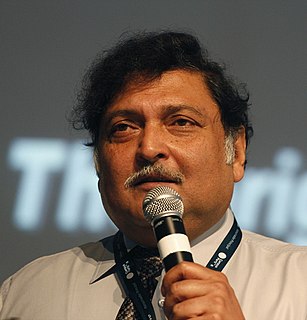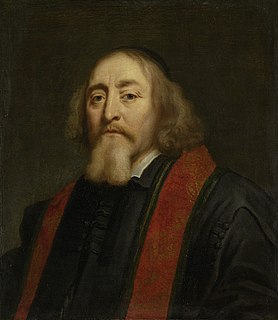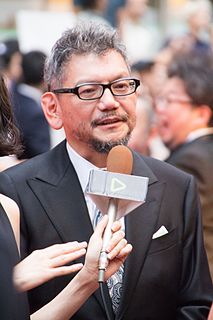A Quote by Herbie Hancock
A great teacher is one who realizes that he himself is also a student and whose goal is not dictate the answers, but to stimulate his students' creativity enough so that they go out and find the answers themselves.
Related Quotes
As a former high school teacher and a student in a class of 60 urchins at St. Brigid's grammar school, I know that education is all about discipline and motivation. Disadvantaged students need extra attention, a stable school environment, and enough teacher creativity to stimulate their imaginations. Those things are not expensive.
[Steven Spielberg's films] are comforting, they always give you answers and I don't think they're very clever answers. The success of most Hollywood films these days is down to fact that they're comforting. They tie things up in nice little bows and give you answers, even if the answers are stupid, you go home and you don't have to think about it. The great filmmakers make you go home and think about it.
We have this yearning to know the answers to the big questions about space and why we're here; we can't evolve fast enough to figure these answers out on our own, but we can do it through artificial intelligence. But there's also some very scary downsides that could come if we don't put the right safety precautions in there.
Evangelion is like a puzzle, you know. Any person can see it and give his/her own answer. In other words, we're offering viewers to think by themselves, so that each person can imagine his/her own world. We will never offer the answers, even in the theatrical version. As for many Evangelion viewers, they may expect us to provide the 'all-about Eva' manuals, but there is no such thing. Don't expect to get answers by someone. Don't expect to be catered to all the time. We all have to find our own answers.
Often nothing keeps the pupil on the move but his faith in his teacher, whose mastery is now beginning to dawn on him .... How far the pupil will go is not the concern of the teacher and master. Hardly has he shown him the right way when he must let him go on alone. There is only one thing more he can do to help him endure his loneliness: he turns him away from himself, from the Master, by exhorting him to go further than he himself has done, and to "climb on the shoulders of his teacher."
A good teacher can never be fixed in a routine... each moment requires a sensitive mind that is constantly changing and constantly adapting. A teacher must never impose this student to fit his favourite pattern; a good teacher functions as a pointer, exposing his student's vulnerability and causing him to explore both internally and finally integrating himself with his being. Martial art should not be passed out indiscriminately.



































